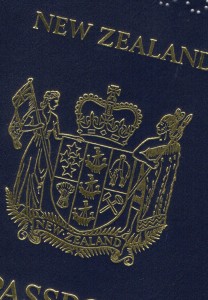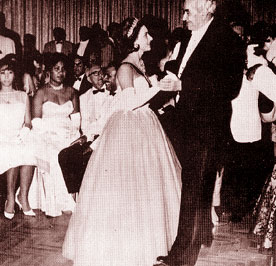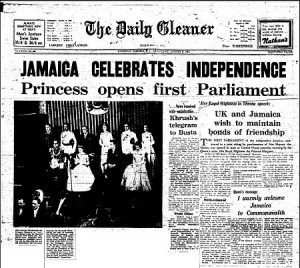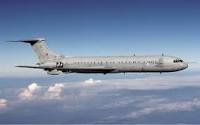Posts Tagged ‘expatriate’
Why we travel
 In 1968, after nearly seven years abroad, my husband and I, along with our two young children, paid a return visit to New Zealand, our homeland. My letters to parents after that visit indicate that we felt unsettled and were exploring how we could return permanently. Unfortunately, I no longer have the letter in which my mother must have suggested we would have been better off if we hadn’t left in the first place. But I do have my answer. Reading it again, I’m struck by how relevant my defense of the value of travel still is.
In 1968, after nearly seven years abroad, my husband and I, along with our two young children, paid a return visit to New Zealand, our homeland. My letters to parents after that visit indicate that we felt unsettled and were exploring how we could return permanently. Unfortunately, I no longer have the letter in which my mother must have suggested we would have been better off if we hadn’t left in the first place. But I do have my answer. Reading it again, I’m struck by how relevant my defense of the value of travel still is.
6 August 1968
A big question you asked, Mum, with a number of overtones. I think you really would have preferred your family to be more like [her sister’s children], wouldn’t you? I envy them too, in a way, settling down in the neighbourhood in which they were brought up, sharing common interests and activities with their parents and their local community.
It would have been simpler to have stayed at home. But the question is, whether you want a peaceful, comfortable life, or whether you need to know yourself. It does no harm to strip away a few illusions. The most important thing about travelling is that you quickly lose the complacent assurance that your own little set of values holds good for everybody. It is only by getting away from NZ that you can begin to see the country and its people in perspective, and it is only by being a foreigner in a different community that you can learn to be objective about social attitudes and customs.
I would be very sad not to have seen the things I have seen. It is not that our perceptions are dull in New Zealand, just that in many areas they cannot be awakened. All the art appreciation we had at school was poor second-hand stuff compared to our first sight of original Rembrandts in New York. History was unreal too, until we walked through the streets of London, or found, in the crypt of a Mediaeval abbey, a Saxon chapel built of masonry filched from Roman ruins. Childhood fairy stories had little meaning until I saw castles and village greens, and crooked pink cottages with overhanging thatch and winding sprays of apple blossom and ducks on a pond.
Of course there are difficulties, one being that it is very easy to finish up with a splendid pile of memories, and no homeland. But on the other hand, I now have a better idea of what sort of person I am, and this to me is more important.
Airline pilot: a loyal expat
Among the New Zealanders Abroad series I wrote for my New Zealand newspaper in the 1960s is a lengthy interview with airline pilot Captain Ronald Hartley. His celebrity in 1962 was as commander of the airliner taking Princess Margaret and the Earl of Snowdon to Jamaica for the independence celebrations. Later that decade he flew Queen Elizabeth and the Duke of Edinburgh to Canada.

Princess Margaret dancing with Sir Alexander Bustamente at the Jamaican Independence Day celebrations. From http://blogs.jamaicans.com/
A World War II Royal Air Force hero, Hartley helped form an airline that amalgamated with B.O.A.C. He was one of the first B.O.A.C. pilots to train on Britannia aircraft, and in 1962 was deputy flight manager of the Britannia 102 flight. Much of his work involved the planning of new aircraft, such as the Vickers VC10.
“We are surrounded by experts who know what is possible – it is our job to stand in the middle of the argument and tell them exactly what we require.” In such things as the layout of cockpits pilots can bring practical experience, and Captain Hartley and his colleagues are at present working for a standardization of cockpit design. This is so that a pilot can if necessary step into a strange place and know where all the instruments are likely to be on the panel.
Captain Hartley was born in Auckland in 1909. When he was 19 years old his parents returned to England, taking him with them. Although he never returned to New Zealand, Captain Hartley was still very proud of being a New Zealander.
“There is something about the land of one’s birth that makes you always loyal to her,” he said. He is proud of New Zealand’s social legislation, and the high reputation that New Zealanders have in England, a reputation gained, he thinks, from their service during the two world wars.
His memory of New Zealand is a picture of beaches and bush. “When I was a boy we used to jolt down a dirt road to the beach at Muriwai or Piha, and when we got there we would have the whole place to ourselves – not like the noisy, overcrowded holiday places here in England.” He remembers Boy Scout camps on the shores of Manakau Harbour, with the bush coming down to the water, and long hot summers with warm water for swimming. Now he has a cottage in Devon, but even in mid-summer the water could only be described as “bracing.”
He found the different way of life in England hard to get used to at first. “In my first year I rushed around joining clubs – tennis clubs, athletics clubs, anything to make friends.” He was conscious of the class distinctions in English society. ”It sometimes worried me that I didn’t know much about things like wines, or the right brand of cigars or caviar. Now that I am older, and know more about me, I have learned better.”
He had come to realize that most people needed his help and friendship more than he needed theirs, and he has worked on this assumption throughout his career.
“I have tried to bring up my children the same way too. When they showed signs of shyness at an early age, I used to tell them, if they were going to a party: “Now don’t you dare have a good time until you see some little boy or girl who looks lonely and make friends with him.”
For the new immigrant to England such as myself, his comments about not being able to return permanently to his birthplace were an uncomfortable revelation, and one we quickly discovered for ourselves. He was having too much fun, he said.
“I enjoy dealing with people, and I love the clash of personalities and opinions that you get in such a huge and complex organization as this.”
Postscript: on Nov. 21, 1969, Captain Hartley was killed when as a passenger on a Nigerian Airlines flight, the new Vickers VC10 crashed on its landing approach to Lagos airport.
Natives and Exotics
My friend Diana, who lives in New Zealand, has a wonderful piece in her journal today about the “exotic” species in her garden. It set me thinking about where I live. The English sparrows and starlings that forage in town don’t have much chance here at the edge of the forest, where the native birds are so dominant. Our resident Red-Shouldered Hawk argues noisily with the ravens, an American Robin sings his heart out from the top of the tallest fir. A dozen quail putter through the garden, and the returning Violet-Green Swallows inspect their nest site in the porch.
Of plants my garden is a mixture: some natives, but more Mediterranean and Australian dry-summer species. My little apple tree is in glorious blossom. But the tree I treasure is a young and flourishing Pohutukawa, a New Zealand native that reminds me of the beaches of my childhood.

